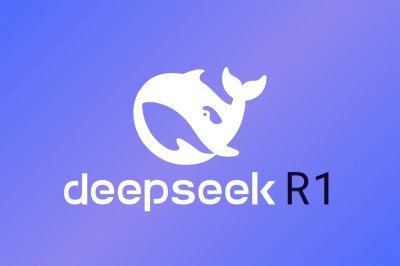Switzerland Unveils Open-Source AI Model "Apertus," Challenging Tech Giants
@devadigax03 Sep 2025

Switzerland has entered the burgeoning field of large language models (LLMs) with the launch of Apertus, an open-source alternative to proprietary models like OpenAI's ChatGPT and Anthropic's Claude. The announcement, initially reported by SWI swissinfo.ch and picked up by Engadget, marks a significant step towards greater transparency and accessibility in the rapidly evolving AI landscape. The release includes not only the model's source code but also its training data and model weights, a level of openness rarely seen among major players in the industry.
This unprecedented level of transparency is a key differentiator for Apertus. While companies like OpenAI and Google have been criticized for their opaque development processes and the potential for bias in their proprietary models, Apertus aims to foster collaboration and scrutiny by making its entire development pipeline publicly available. This open approach allows researchers, developers, and the wider public to examine the model's architecture, identify potential biases, and contribute to its improvement. Such openness is crucial for building trust and ensuring responsible AI development.
The decision by Switzerland to develop and release Apertus is likely driven by a number of factors. Firstly, there's a growing concern globally about the concentration of power within a few large tech companies dominating the AI market. Open-source alternatives offer a way to democratize access to this powerful technology, fostering competition and preventing a monopolistic situation. Secondly, the Swiss government likely sees value in promoting innovation and research within its own technological ecosystem. Apertus could attract talent and investment, boosting Switzerland's position as a hub for technological advancements.
The specific details regarding Apertus's capabilities are still emerging, but the availability of the training data provides valuable insights. The model is likely trained on a large corpus of publicly available Swiss-German and French text data, reflecting the country's linguistic diversity. This localized training dataset is a significant advantage as it allows Apertus to perform well on tasks related to Swiss culture, laws, and languages, something which large, globally-trained models might struggle with. Future development may see the model's training expanded to include other languages, enhancing its applicability worldwide.
However, the open-source nature of Apertus also presents challenges. Maintaining and updating the model will require ongoing effort from the research community. Addressing potential biases in the training data and ensuring the model's responsible use will also be crucial. The potential for misuse, including the generation of misinformation or malicious content, is a concern with all LLMs and will necessitate robust monitoring and community guidelines.
The release of Apertus is a significant moment in the history of AI development. It represents a commitment to transparency, collaboration, and responsible innovation, offering a compelling alternative to the predominantly closed-source models that currently dominate the market. Its success will depend on the active engagement of the open-source community and the ongoing efforts to mitigate the inherent risks associated with powerful AI models. The long-term impact remains to be seen, but Apertus has undoubtedly sparked a vital discussion about the future of AI development and its societal implications. The ability of this open-source model to compete with commercially driven giants will be a critical test case for the future of AI development.
The project also raises important questions about the role of governments in fostering innovation and promoting ethical AI development. Switzerland’s proactive approach serves as a potential model for other countries looking to invest in and shape the future of artificial intelligence within their own borders. The coming months and years will be crucial in observing Apertus’s development and assessing its impact on the wider AI landscape. This bold move by Switzerland could potentially reshape the competitive landscape and redefine how AI models are developed, deployed, and governed globally.
This unprecedented level of transparency is a key differentiator for Apertus. While companies like OpenAI and Google have been criticized for their opaque development processes and the potential for bias in their proprietary models, Apertus aims to foster collaboration and scrutiny by making its entire development pipeline publicly available. This open approach allows researchers, developers, and the wider public to examine the model's architecture, identify potential biases, and contribute to its improvement. Such openness is crucial for building trust and ensuring responsible AI development.
The decision by Switzerland to develop and release Apertus is likely driven by a number of factors. Firstly, there's a growing concern globally about the concentration of power within a few large tech companies dominating the AI market. Open-source alternatives offer a way to democratize access to this powerful technology, fostering competition and preventing a monopolistic situation. Secondly, the Swiss government likely sees value in promoting innovation and research within its own technological ecosystem. Apertus could attract talent and investment, boosting Switzerland's position as a hub for technological advancements.
The specific details regarding Apertus's capabilities are still emerging, but the availability of the training data provides valuable insights. The model is likely trained on a large corpus of publicly available Swiss-German and French text data, reflecting the country's linguistic diversity. This localized training dataset is a significant advantage as it allows Apertus to perform well on tasks related to Swiss culture, laws, and languages, something which large, globally-trained models might struggle with. Future development may see the model's training expanded to include other languages, enhancing its applicability worldwide.
However, the open-source nature of Apertus also presents challenges. Maintaining and updating the model will require ongoing effort from the research community. Addressing potential biases in the training data and ensuring the model's responsible use will also be crucial. The potential for misuse, including the generation of misinformation or malicious content, is a concern with all LLMs and will necessitate robust monitoring and community guidelines.
The release of Apertus is a significant moment in the history of AI development. It represents a commitment to transparency, collaboration, and responsible innovation, offering a compelling alternative to the predominantly closed-source models that currently dominate the market. Its success will depend on the active engagement of the open-source community and the ongoing efforts to mitigate the inherent risks associated with powerful AI models. The long-term impact remains to be seen, but Apertus has undoubtedly sparked a vital discussion about the future of AI development and its societal implications. The ability of this open-source model to compete with commercially driven giants will be a critical test case for the future of AI development.
The project also raises important questions about the role of governments in fostering innovation and promoting ethical AI development. Switzerland’s proactive approach serves as a potential model for other countries looking to invest in and shape the future of artificial intelligence within their own borders. The coming months and years will be crucial in observing Apertus’s development and assessing its impact on the wider AI landscape. This bold move by Switzerland could potentially reshape the competitive landscape and redefine how AI models are developed, deployed, and governed globally.
Comments
Related News

Beyond the Mic: Instagram Denies Eavesdropping, But AI's Predictive Power Redefines Digital Privacy
@devadigax | 01 Oct 2025
@devadigax | 01 Oct 2025

Microsoft 365 Premium Redefines AI Productivity, Bundling Copilot to Rival ChatGPT Plus Pricing
@devadigax | 01 Oct 2025
@devadigax | 01 Oct 2025

Wikimedia's Grand Vision: Unlocking Its Vast Data Universe for Smarter Discovery by Humans and AI
@devadigax | 30 Sep 2025
@devadigax | 30 Sep 2025

Google Drive Fortifies Defenses with New AI-Powered Ransomware Detection
@devadigax | 29 Sep 2025
@devadigax | 29 Sep 2025

The DeepSeek Phenomenon: Unpacking the Viral AI Chatbot from a Leading Chinese Lab
@devadigax | 29 Sep 2025
@devadigax | 29 Sep 2025
 AI Tool Buzz
AI Tool Buzz